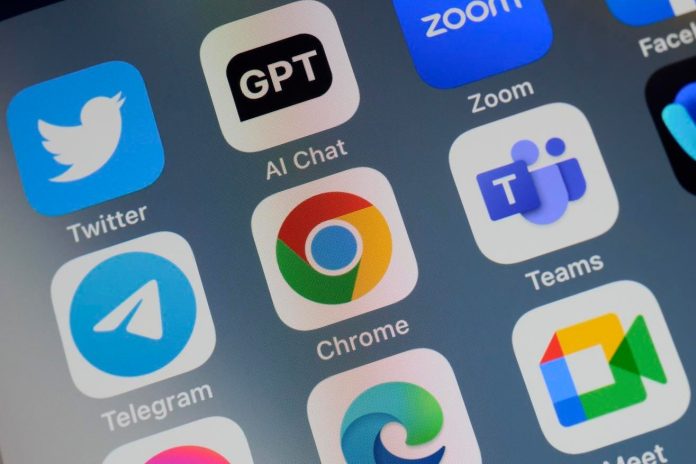OpenAI leadership has publicly expressed interest in acquiring Google’s Chrome browser if the … More
In a bid that would reshape the digital landscape, OpenAI has expressed interest in acquiring Google’s Chrome browser — if compelled by the Department of Justice to be sold off by Alphabet. The revelation, originally reported on Tuesday, comes as part of a broader antitrust probe into Google’s control over its AI products and business practices, including alleged exclusive Gemini deals with Android phone makers.
While the U.S. government has made no such announcements about intentions for a forced divestiture, the mere prospect has provoked heated discussion throughout tech circles about what would have to transpire if Chrome — the leading web browser with a 65% worldwide market share — were to fall into the hands of OpenAI.
Game-Changing Possibility If OpenAI Buys Chrome
AI expert Pascal Bornet, the writer of IRREPLACEABLE: The Art of Standing Out in the Age of Artificial Intelligence, stated the effects would be seismic. “Acquiring Chrome would fundamentally transform OpenAI’s distribution model in several ways,” he explained in an email response. “Instead of requiring users to actively seek out OpenAI services, their AI would become ambient within the primary tool most people use to access the internet.”
Bornet sees the step as not only a strategic leap in acquiring users — Chrome has 3.3 billion users, by reports — but a structural one in the distribution and monetization of AI.
“The most profound change would be the shift from OpenAI being an application you access to becoming the intelligence layer that mediates your entire digital experience — a fundamental repositioning that would dramatically accelerate the company’s influence on how we interact with technology.”
Yet opportunity invites scrutiny. Bornet warned, “While breaking Google’s monopoly is the goal of antitrust action, simply transferring Chrome to another powerful AI company may not truly diversify the market.”
Potential Benefits Of An OpenAI, Chrome Combo?
Conor Grennan, AI Mindset CEO and NYU Stern chief AI architect, articulated cautious optimism. “An OpenAI acquisition of Chrome — should Google be forced to divest it — could fundamentally reshape the AI competitive landscape,” he said. “Breaking this connection would create what the market truly needs — competition between different visions of AI-augmented computing.”
That vision, Grennan said, could lead to innovation. “An OpenAI-owned browser might evolve into an interface that better understands user intent and synthesizes information across the web,” he noted. But he also raised a cautionary flag. “Transferring Chrome from one powerful entity to another raises legitimate concerns about trading one gatekeeper for another,” he noted in an email exchange.
These responses are set against the background of disclosures that Google had agreed to single-source deals with Android phone makers to pre-install its Gemini AI suite, prompting concern among regulators that the firm was leveraging dominance of an ecosystem to stifle competition. In this context, any divestment of browsers would be cast as a pro-competition move. However, OpenAI entering the browser ownership mix would muddy that message a bit.
San Jose State University engineering professor and technology expert Ahmed Banafa cited the two-way aspect of such a shift. “With OpenAI’s advanced models like ChatGPT, Chrome could evolve into a highly intelligent browser,” Banafa wrote in an email message, envisioning a future of “real-time content summarization, AI-powered search enhancements and context-aware assistance.”
Would Selling Chrome To OpenAI Create A New Monopoly?
Yet like his fellow experts, Banafa also warned against swapping out one technology titan with another. “Replacing one tech giant with another could simply shift monopoly power,” he warned. “OpenAI might prioritize its own services within Chrome, marginalizing rival AI tools or search engines — ultimately limiting user choice and stifling broader innovation.”
This risk was highlighted by Helen Yu, CEO of Tigon Advisory. “That could lead to a new monopoly in the browser and AI market,” she wrote in a text message. “The combination of OpenAI’s AI expertise and Chrome’s dominant market position might limit the ability of smaller companies or competitors to innovate and thrive.”
User privacy is also on the line. With Chrome, OpenAI would gain access to a treasure trove of user behavior data — data that might fuel its large language models but also trigger indignation from privacy activists. “Data privacy issues and user tracking issues could increase,” Yu stated.
OpenAI Already Walks The Browser “Edge” With Microsoft
OpenAI, which is in a tight partnership with Microsoft — owner of the Edge browser — would have to convince regulators and the public that its intentions won’t further solidify digital monopolies.
Really, the potential acquisition has less to do with browser tech and everything to do with dominance of the digital frontier. As Grennan concisely summed it up, “The best outcome is a balance between healthy competition and proper guardrails so that no one company — be it Google, OpenAI or another — can use browser dominance to dictate the future of AI.”




